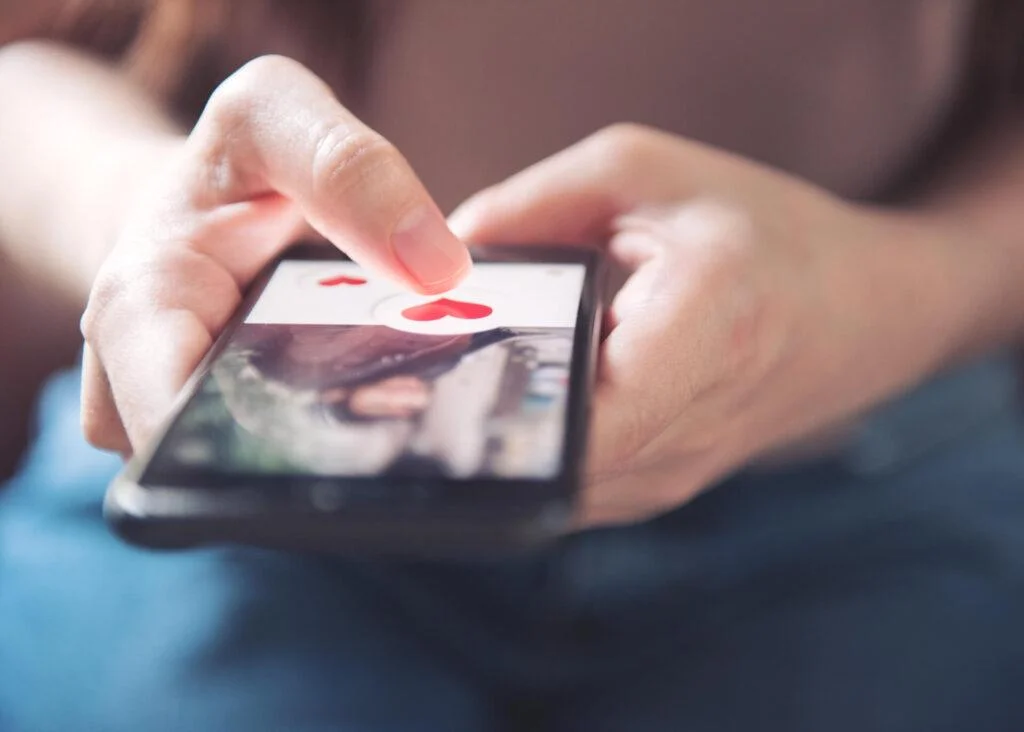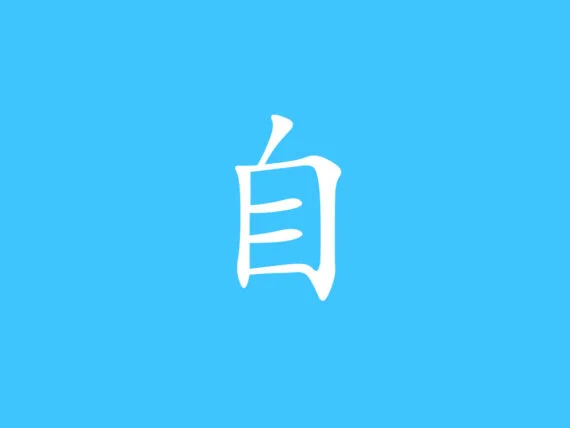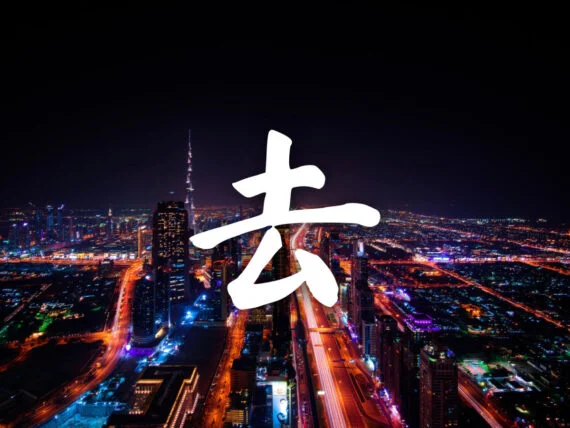50 Chinese Slang Words to Make You Sound Like A Native

The words and phrases you memorize in the classroom may not always sound natural when you use them in real life. Do you really want to impress the locals in China? We are here to help you! Go ahead and bust out any of these Chinese slang words and phrases so that you can stop sounding like a walking textbook.
Chinese slang to describe people
Society in China is rich with culture and colorful with interesting and amazing people to meet and become friends with. Numerous Chinese slang words have appeared to describe Chinese society’s various roles and archetypes to express all the different types of people. Although not too helpful for business Chinese, these slang words are great for Chinese learners to build a local vocabulary. Moreover, using them will give the impression that you know your stuff and have a good grasp of the Chinese language.
1. 高富帅 – Gāofùshuài
What are the three things that every woman looks for in a man? Tall 高, rich 富, handsome 帅. The term 高富帅 (gāofùshuài) is typically used to describe the handsome ideal man that could sweep any girl off her feet and is the complete package. This type of guy can get any woman he wants, and parents can only dream of having their daughter marry one day.
尽管几乎每个男人都想成为“高富帅”,但是现实是非常残酷的。
Jǐnguǎn jīhū měi gè nánrén dōu xiǎng chéngwéi “gāofù shuài”, dànshì xiànshí shì fēicháng cánkù de.
Although almost every man wants to be “tall, rich, and handsome,” the reality can be quite cruel.
2. 白富美 – Báifùměi
The female counterpart to the 高富帅 (gāofùshuài) is the 白富美 (báifùměi). She has flawless snow-white skin 白, is very rich 富, and of course, is beautiful beyond comparison 美. Generally, this describes girls who are drop-dead gorgeous and the embodiment of feminine grace.
While this list of traits may come off as a bit superficial and skin-deep, 白富美 is the manifestation of the beauty standards set by Chinese culture as a whole. Women might also use this term to describe other women, such as celebrities or fashion icons they wished they looked like.
白富美是很多男人的理想对象。
Yǒu hěnduō nánrén de lǐxiǎngxíng shì bái fùměi.
There are a lot of men whose ideal type is pale, rich, and beautiful.

3. 学霸 – Xué bà
A 学霸 (xué bà) is the perfect student and the king of the classroom when it comes to all things academic. While other kids read comic books and watch cartoons, the 学霸 stays in the house, reads textbooks, and does their homework without being asked. The 学霸 is a straight-A student that every teacher loves, and every Chinese parent wishes were their own. So keep studying Chinese, and maybe one day that 学霸 will be you!
One way you can use this slang is if your friend tells you that they have never gotten less than 100% on a test, you can say as a snide remark:
学霸就是上课不认真,考试却考得好的人。
Zhè zhǒng xuébà zhēnshi ràng rén lèiliúmǎnmiàn!
This type of ‘perfect student’ makes people want to cry!
4. 宅女/宅男 – Zháinǚ/zháinán
宅女/宅男 (zháinǚ/zháinán) is used to describe Chinese girls or boys who stay at home all day and watch TV, play video games, and read comics. Often in their twenties, these shut-ins have no desire to participate in society to any extent. It increases concern for the government as their growing numbers threaten the stability of the Chinese labor force.
近年来,中国有越来越多的宅男,可能因为网络变得很方便了。
Jīnnián lái, zhōngguó yǒu yuèláiyuèduō zháinán。
In recent years, China has had more and more shut-in men.

5. 人设 – Rén shè
The literal translation of 人设 (rén shè) is “person design,” which references the concept of the public persona, one’s image within society, or someone’s “personal brand.” The 人设 exists as a concept in China because, in Chinese culture, the idea of a societal image is deeply ingrained in society. Therefore, how you act is based on how you wish to be perceived rather than who you actually are.
他的人设是一个有趣又有钱的人,但真实的他又是什么样的呢?
Tā de rénshè děi kàn tāde cáifù.
His image is based on his wealth.
6. 人上人 – Rén shàng rén
Not to be confused with a superhero, the literal meaning of 人上人(rén shàng rén) is “a man above all men” or even a “superhuman.” Someone who is a 人上人 is an outstanding person whose physical abilities far exceed anything that you would have thought possible. For example, maybe they can run a four-minute mile, or perhaps they can lift hundreds of pounds of brick as if they were feathers. These maniacs don’t even need a moment to rest between feats of greatness! Whatever awesome thing they can do, they do it better than anyone and have sure commanded your respect for it.
吃得苦中苦,方为人上人。
Nà gànglíng zhème zhòng! Nǐ zhēn shì rénshàngrén!
That barbell is so heavy! You are really a man above all others!

7. 土豪 – Tǔháo
The 土豪 (tǔháo) is an up and coming economic class in China and refers to someone who is newly wealthy and has just come into money. Despite having originated from humble beginnings, now that the 土豪 has so much money, they feel the need to flaunt it and show people just how rich they are. As a result, 土豪 will commonly blow large sums of cash on sports cars, designer clothing, lavish vacations, and even full-blown mansions. This all comes back to the idea of 面子 miànzi (“face”) in China, where your image is your everything.
Here is an example:
听说你叔叔买了一辆法拉利?
Tīngshuō nǐ shūshu mǎi le yī liàng fǎlālì?
I heard that your uncle bought a Ferrari?
对,他是土豪。
Duì, tā shì tǔháo。
That’s right, he is newly rich.
8. 富二代 – Fùèrdài
Perhaps considered the opposite of the 土豪 (tǔháo), 富二代 (fùèrdài) came from generational wealth and were born with a silver spoon in their mouths. In addition to having rich parents, fùèrdài have all the best societal connections. This often leads them to work cushy government jobs highly coveted by many in China. This slang word has a bit of a negative implication and so best not to use it to describe them to their face.
我先以为他是很厉害的人,后来才发现他就只是一个富二代。
Wǒ xiān yǐwéi tā shì hěn lìhài de rén, zài fāxiàn tā jiùshì gè fùèrdài de。
At first, I thought he was incredible, but then I realized he was just born rich.

9. 吃土 – Chī tǔ
If only we were all rich and had all the money in the world. The literal translation of 吃土 (chī tǔ) means to “eat dirt” and refers to someone who blows the entire salary in one go and is now so broke that they cannot even afford to buy food.
我不能再花钱了,就快吃土了。
Wǒ bùnéng zài huā qián le, jiù kuài chī tǔ le。
I can’t spend any more money or else I’ll have to eat dirt.
10. 丑八怪 – Chǒu bā guài
The literal translation of 丑八怪 (chǒu bā guài) is “eight ugly ghosts” but translates to something more along the lines of “monster-looking.” While this doesn’t sound like the nicest thing that you could say to someone, this phrase can have a positive or affectionate meaning, especially if used in the proper context. Some examples that would be considered 丑八怪 would be a pug, an opossum, and maybe even a fat alligator.
我不化妆,就是个丑八怪。
Wǒ bù huàzhuāng, jiùshì gè chǒubāguài。
Without makeup, I’m ugly.

Chinese internet slang
The internet is a linguist’s playground for those who want to learn Chinese and speak like a native. Social media, web forums, reading the news, and online gaming are great ways to learn Chinese internet slang and interesting new vocabulary words. But, of course, these are not the typical words and phrases that you’ll learn in Mandarin school or from a textbook. And while the list of Chinese internet slang could wrap around the world a few times over, here are some cool phrases that will get you started in a conversation online.
1. 网瘾 – Wǎng yǐn
Chances are that if you are reading this from either your mobile phone or laptop, you have a 网瘾 (wǎng yǐn) or an “internet addiction.” Of course, addiction to endless browsing online can be seen as a bad thing and even a problem. It can quickly get in the way of your productivity, sleep, and personal life.
For example, something a Chinese mother might say:
你成绩这么糟糕,戒除网瘾吧!
Nǐ chéngjī zhème zāogāo? Yīnggāi jièchú wǎngyǐn ba!
How come your grades are so bad? You need to give up your internet addiction!
2. 网民 – Wǎngmín
Another vital word that you’ll see pop up as you surf the web is the phrase 网民 (wǎngmín). It refers to the almost 1.01 billion Chinese netizens that are online. For this slang word, the character 网 means internet and 民 mean citizen. Therefore, someone who is a 网民 is a citizen of the internet.
你知道中国的网民超过1. 62亿个人吗?
Nǐ zhīdào zhōngguó de wǎngmín chāoguò 1. 62 yì gè rén ma?
Did you know that there are more than 162 million Internet users in China?

3. 网友 – Wǎngyǒu
One of the Chinese phrases that gained serious traction in recent years and is widely used is the term 网友 (wǎngyǒu). The second character in 网友 is 友 which means friend, and so the direct translation of 网友 is an “internet friend.”
尽管我们开始只是网友,但他现在成了我最好的朋友。
Jǐnguǎn wǒmen jiùshì wǎngyǒu, tā háishì wǒ zuìhǎo de péngyǒu!
Even though we are just internet friends, he is still my very best friend!
4. 屌爆了 – Diǎobàole
Young people use the word 屌爆了(diǎobàole) to describe something super cool or incredible. For example, if you go to a cool place and then post a picture on social media, a friend might comment 屌爆了to let you know how cool they think your photo is. You can also use it to talk about things like popular shows or music.
这一集权力的游戏屌爆了!
Zhè yī jí quánlì de yóuxì diǎo bàole!
This episode of Game of Thrones absolutely slaps!

5. 打卡点 – Dǎkǎ diǎn
打卡点 (dǎkǎ diǎn) is a “selfie hotspot” or somewhere that people love to take pictures. One example would be a famous sight such as the Great Wall or the Shanghai tower. Another example might be somewhere a bit more trendy, like a cute café or a bustling city plaza. Take a picture, post it online, and rack up those likes!
长城是中国最受欢迎的打卡点。
Chángchéng shì zhōngguó zuì shòu huānyíng de dǎkǎdiǎn.
The Great Wall is the most popular selfie hotspot in China.
6. 口水战 – Kǒushuǐ zhàn
This funny Chinese slang is often used when hot topics are heavily debated on the internet. 口水 means “saliva,” and 战 means “battle,” so put together, 口水战 (kǒushuǐ zhàn) can mean an internet war or an online fight.
Often, these keyboard clashes can be ridiculous and trivial, such as which movie is best or if one phone brand is better than the other. However, the topic can be much more serious and typically related to ethics or politics. In these cases, best not to engage and save yourself the hassle.
口水战真的是浪费时间,毫无意义。
Wǒ duì tā shuō de háowú xìngqù, wǒ duì zhǎnkāi kǒushuǐzhàn háowú xìngqù.
I don’t care what she said. I have absolutely no interest in starting an internet war with her.

7. 装逼 – Zhuāng bī
You’ll catch a lot of people online pretending to be cool or obviously flexing, which is exactly what 装逼 (zhuāng bī) describes. While you can call someone’s lies out using 装逼, often, people will use it themselves to admit their bluff.
An example would be if someone tells you that they are fluent in English but undenounced to them, you are a native speaker, and you try to test out their language skills. Upon getting caught, they might shout out:
不要装逼了,你又不会讲英文!
Zhuāngbī le, wǒ bù huì jiǎng yīngwén!
I’m just pretending to be cool. I don’t actually speak English!
8. 凡尔赛文学 – Fáněrsài wénxué
凡尔赛 (fáněrsài) is French palace Versailles and 文学 (wénxué) means literature. But interestingly enough, this phrase has nothing to do with the rich literary brilliance of France. In contrast, 凡尔赛文学 (fáněrsài wénxué) has a bit of a negative meaning and is a “humblebrag” or “flex” on social media.
When young people want to boost their online popularity, often they’ll post pictures of them shopping in high-end department stores or driving a luxury car. This behavior is pretty easy to spot hence the existence of a word to call such people out.
For example, if your friend asks you if you follow Kim Kardashian’s accounts on social media, you can respond:
你明明有那么多钱,还哭自己穷,也太凡尔赛了吧!
Wǒ cónglái bu kàn tā de fán’ěrsài wénxué, wǒ wánquán méi xìngqù.
I don’t follow her touched-up fantasy life. I am not interested at all.
Did this phrase sound familiar to you? It’s because it came from the Japanese comic series “The Rose of Versailles” and seeped its way into Chinese jargon.

9. 柠檬精 – Níngméng jīng
The English version of this word is “hater,” someone who has a “lemon spirit” or 柠檬精 (níngméng jīng) is perpetually bitter or sour to see other’s success. Those who are always complaining about how other people’s happiness is unfair are said to be 柠檬精, but that shouldn’t prevent you from living your own life. After all, haters gonna hate!
柠檬精们自己做不到,还看不惯做得到的人。
Níngméngjīng xǐhuān qīfù bǐ zìjǐ hǎo de rén。
Bitter people like to bully people who are doing better than they are.
10. 一起爬山吗? – Yìqǐ páshān ma?
The phrase 一起爬山吗? (yìqǐ páshān ma?) translates to “do you want to go on a hike?” but the actual, implied meaning means “do you want to die?” This phrase came from the hit Chinese drama Bad Kids and became a popular meme.
This shows that many hip Chinese slang phrases are not just born on the internet these days but will also come directly from external media like movies.

Chinese slang using letters
One of the most challenging parts of learning Chinese is mastering the thousands of Chinese characters integral to learning the language. Luckily, the following list of Chinese slang using letters doesn’t require memorizing new Chinese characters. Instead, they are all abbreviations and are made up of letters from the English Alphabet.
Chinese young people love to use these hip and trendy words and phrases, especially since Chinese internet slang words or group chats while playing video games online.
1. HHH
LOL is one of the most commonly used internet slang words in English. Luckily, the Chinese language has its own version as well. HHH stands for 哈哈哈 (hāhāhā). Even if someone’s joke is not particularly funny, HHH can have a sarcastic or ironic connotation, so don’t be shy about using it as a joke.
2. XSW
HHH, not cutting it for you? XSW is a bit like LMAO in English and is short for 笑死我了 (xiào sǐ wǒ le), which literally means “laughed so hard I died.” Chinese people use this all the time over text and the internet when something is not just funny but downright hilarious.
3. DBQ
We all make mistakes. It’s part of being human, and it gives us both the chance to learn and grow as a person. However, the important thing is that after we mess up, we apologize to the people who may have gotten hurt along the way.
DBQ stands for 对不起 (duìbùqǐ), which means “sorry” in Chinese. While the abbreviated DBQ isn’t a deep or sincere apology, it can work when you’re running late or forget to reply to your friend’s message.

4. BDJW
If you have something to ask someone, you can preface it with 不懂就问 (bù dǒng jiù wèn), which means something along the lines of “just wondering…” or “I’ve been meaning to ask you…”
Take, for example, the following sentence:
BDJW, 我们今天有作业吗?”
Bdjw wǒmen jīntiān yǒu zuòyè ma?
Hey, I was wondering whether we have homework today.
Here’s another example:
BDJW, 你有没有女朋友?”
Bdjw, nǐ yǒu méiyǒu nǚ péngyǒu?
I’ve been wondering, do you already have a girlfriend?
It’s a pretty common and versatile Chinese slang word, so use it well.
5. U1S1
A mixture of letters and numbers, U1S1 is short for the Chinese phrase 有一说一 (yǒu yī shuō yī), which means to be frank or honest. An example of using this phrase would be when a friend texts you screenshots of a conversation she is having with an attractive boy, but she’s unsure if he is interested in her or not.
You can clearly tell that he wants nothing to do with this girl, so you have to give her a hard taste of reality by texting her back with:
U1S1, 他对你没兴趣
U1S1, tā duì nǐ méi xìngqù
To be honest, he is not interested in you at all.
6. NSDD
It’s never easy to hear advice that stings, but you know it will be better in the long run. Sometimes you just have to suck up your pride and agree with what your friend has said. NSDD is short for 你说得对 (nǐ shuō dé duì), which literally means “what you said is correct.”
This can either have a positive or negative connotation. Generally, it is used to agree with what has been said before.

7. ZQSG
ZQSG is the shortened version of 真情实感 (zhēnqíng shígǎn). The literal meaning of this phrase is “true feelings.” However, it is more often used to express an emotional state of being moved or touched. For example, a movie could be ZQSG or perhaps even a touching news story. Typically something that provokes a sense of strong emotion in your heart will make you want to say ZQSG and express how moved you really are.
8. CP粉 – CP fěn
CP is short for “couple,” and 粉 (fěn) is a fan of something. So when we refer to something as a CP粉, it implies that you are a fan of that couple’s relationship. This is pretty much the same thing as “shipping” a couple.
Chinese fans of all media ranges will use CP 粉 to describe shipping couples in TV dramas, movies, webtoons, and even actual celebrities. It’s not just limited to hetero couples as often same-gender couples will be shipped by Chinese fans.
9. KSWL
Ever seen a couple that is so sweet that it could kill you? That’s what KSWL means and what Chinese people use to react to couples that seem just too cute to be true. KSWL is short for 磕死我了(kē sǐ wǒle) and is like a big “awwww” when used.
An example of when you might use this word is when you see the male protagonist of a Chinese drama make a huge romantic gesture and then sweep the leading actress off her feet. Or another example would be when you see a handsome guy waiting at a bus station for someone in the freezing cold, holding a bouquet of roses. KSWL, you exclaim! Secretly you wish that he was waiting for you.

10. PLJJ/PLGG
PLJJ or PLGG abbreviation is used for when you meet or see someone really handsome or attractive. PLJJ means beautiful sister and is short for 漂亮姐姐 (piàoliang jiějiě) and is used to describe a pretty girl. Meanwhile, 漂亮哥哥 (piàoliang gēgē) is the complete form of PLGG, which describes men. Often these words are used to express a crush on a celebrity, but if someone refers to you as either a PLJJ or PLGG, you can take it as a huge compliment.
11. QSWL
Has someone made you so furious that you could just feel your blood start to boil? For example, your friend breaks a promise to you, or someone you thought was a decent person turns out to be an actual scumbag. Or another example would be if someone were to eat the leftover food you had been saving in the fridge. These are times when you use QSWL when you feel like a volcano ready to explode.
The actual meaning of QSWL is 气死我了 (qìsǐ wǒle, literally meaning “I’m so angry that I could die!” While this may come off a bit extreme, if you have an annoying younger brother or sister will know exactly the feeling that QSWL conveys.
12. TMD
TMD stands for 他妈的 (tā mā de), which means “His mother’s…” Not quite the nicest thing to say to another person and basically the English equivalent to dropping a huge F-bomb when you are extremely angry or annoyed. Just be careful when you use this, so you don’t provoke a fight or wind yourself up in big trouble.

13. YYDS
Has your best friend come in clutch and helped you out big time? Or maybe someone from work has offered to fill in for you at the last minute. Perhaps someone you know is just downright awesome in general! Thank them and let them know that they are the absolute best by calling them YYDS.
YYDS is the shorthanded form of 永远的神 (yǒngyuǎn de shén) which literally translates to “eternal god.” The closest English slang equivalent would be calling someone the GOAT (Greatest Of All Time), but that doesn’t sound quite have the same ring to it as being dubbed an “eternal god.”
While the YYDS might sound like something rooted in Chinese culture, it originally was coined by a famous eSports player Shiny Ruo. He shouted out “Uzi, YYDS!” when referring to the legendary skills of one of his all-time favorite players of the game.
14. QQQ
Can you guess what QQQ slang word means? It is a bit of a bilingual pun and may require a bit of thought before you understand the meaning behind it.
Here we have the English letter Q. In Chinese, this letter is pronounced as English “kyu.” Now let’s look at how many we have. Here we have three Qs, and what’s the Chinese word for three? 三 (sān). So if we put it all together to make QQQ, we get “sān-kyu,” which sounds like the English word “Thank you!” Of course, there are tons of ways to say thank you in Chinese, but this creative one shows that you are truly on your way to mastering local slang.

Chinese number slang
Are you texting your friends in Chinese and always getting steams of seemingly random numbers as a response? Does your inbox look like the crib sheet to a math test? Or maybe all your social media posts are covered in “666?”
In China, people love abbreviating slang on the internet using corresponding numbers that match the pronunciation of Chinese characters with how numbers are said in Chinese. The creativity of Chinese netizens has given birth to a whole slew of Chinese number slang that, while a bit cryptic at first, can be tons of fun to use once you know how to do it.
1. 666 – Liù liù liù
When you first start posting on Chinese social media sites such as Weibo, don’t be surprised if your friends comment 666 on all of your posts and pictures. Unlike the west, where the number 666 in China does not have anything to do with the devil. The pronunciation of 666 (liù liù liù) is very similar to 牛牛牛 (niu niu niu), which means “awesome” or “super cool.” Additionally, the more times you repeat the 6, the better someone thinks you are.
2. 233 – Èr sān sān
If you’ve spent any amount of time on the internet, you’ll know that Chinese people use “哈哈哈” (hā hā hā) as an expression of laughter, just like we use “hahaha” in English. But did you know that Chinese internet slang has evolved and that 哈哈哈 even has its own abbreviation?
233 (èr sān sān) can sound a lot like the snicker of laughter which is why many people in China use this interchangeably with 哈哈哈. In a way, it’s very similar to how English speakers will use both “LOL” and “hahaha” when having a chuckle online.
3. 484 – Shì búshì
The 484 is a witty and versatile Chinese slang word that will be sure to impress all of your Chinese friends. The sound of the number 484 (shì búshì) in Chinese has a similar pronunciation to the characters 是不是 (shì búshì) which mean “yes or no.”
An example of when this word might be used is when someone sends you a picture of their outfit with the message “484”. To respond, you can either text them 是 or 不是 depending on how cool they look. On the other hand, responding with 4 or 48 is a creative alternative if you want to get fancy.

4. 4242 – Sì èr sì èr
Another clever way to reply to 484 is with 4242. When speaking fast and especially if you speak Mandarin with a Beijing accent, 4242 (sì èr sì èr) should sound just like “是啊是啊” (shìa shìa), which is one way to say “yes!” in Mandarin Chinese.
5. 995 – Jiǔ jiǔ wǔ
Your female friend has a massive crush on a boy. He has just sent her a text, and she doesn’t know how to respond. So she texts you a screenshot and the message “995.” What do you do?
In Mandarin, 995 (jiǔ jiǔ wǔ) sounds very close to 救救我 (jiù jiù wǒ), which means “Help me!” So when your friend sends you 995 in a text, it’s your time to shine and come to the rescue.
6. 88 – Bā bā
When you learn Chinese in school, the word that they teach you for goodbye is 再见 (zàijiàn). And while this isn’t wrong per se, in real life and on the internet, 再见 comes off as a bit formal and awkward.
Many Chinese people have adopted saying “bye-bye” in conversation just as in English. However, when it comes to typing or using your phone, this is often abbreviated to just “88” (bā bā) because it sounds very close to “bye-bye.” Additionally, typing “88” instead of “bye-bye” is easier because you don’t need to switch between the pinyin and English on your keyboard.

7. 555 – Wǔ wǔ wǔ
Not having a great day? Express yourself crying over the phone or text with 555 (wǔ wǔ wǔ). If you think about what a long and heavy sob sounds like, it’s not hard to imagine the slow and heavy “woo, woo, woo!” noise of someone shedding their tears.
One example of using this Chinese internet slang would be if you have fun plans with a friend and they text you suddenly to tell you that they can’t go. A great response would be “555” to not only show your despair but also to flex your mastery of the Chinese language.
8. 514 – Wǔ yāo sì
This self-deprecating slang is the Chinese equivalent of the English “fml.” In Mandarin, 514 (wǔ yāo sì) is very close to 我要死 (wǒ yào sǐ), which means “I want to die.” This may come off as scary, but it is more of an exaggeration.
An example of when you might use or see this is when you are getting ready to leave the office, and your boss comes over, dumps a big pile of papers on your desk, and tells you to have it done by the morning.
You text your friends, “I’m not going to make it tonight. The boss is making me work overtime. 514.” Is it dramatic? Yes, but we’ve all had those days.
9. 56 – Wǔ liù
Let’s say that you send your Chinese friend a joke over text, and they just respond with “56.” If you try to say it out loud, you’ll come to understand exactly what your friend really means.
56 (wǔ liù) sounds an awful lot like 无聊 (wúliáo), meaning “boring” in Chinese. Bad jokes, talking about teachers you dislike, or even when you have too much homework for Mandarin school. The possibilities for using “56” as slang are endless.

10. 520 – Wǔ èr líng
The 520 (wǔ èr líng) is one of the most common Chinese internet slang words you’ll encounter in text messages. When a Chinese person sends a text with 520, it represents 我爱你 (wǒ ài nǐ) which means “I love you.” The English equivalent would be “ily” or perhaps even “ilysm,” and Chinese people will often use it as a gesture of thanks or appreciation as well.
11. 1314 – Yī sān yī sì
You’ll often see 1314 numbers in addition to 520. This internet slang comes from the Chinese idiom 一生一世 (yīshēng yīshì), which means “for my whole life and forever.” Adding it to 520 to make 5201314 represents “I’ll love you for my whole life and forever,” a very touching sentiment indeed.
12. 748 – Qī sì bā
There really is a Chinese cuss word for any situation. 748 (qī sì bā) represents 去死吧 (qùsǐba) which means “go to hell” or “go die.” This Chinese slang phrase is certainly not something you would ever text your mom. However, 748 is a great one to sling into a multiplayer game chat if you get taken down by an opponent or if one of your Chinese friends makes a jab at you over text.

13. 530 – Wǔ sān líng
On the other hand, this Chinese slang is something that you most certainly could (and should) send your mom. The pinyin for 530 (wǔ sān líng) is not too far off from and sounds very similar to 我想你 (wǒ xiǎng nǐ), which means I miss you.
Put it all together with some other Chinese slang you learned, and you get 5201314530. At first glance, it looks like the answer to a math problem but really means “I love you forever and I miss you.”
14. 7456 – Qī sì wǔ liù
You’ve made a big mistake. You got into a massive fight with your girlfriend, and now whenever you text her, she only responds with “7456.” But what does that even mean?
The pinyin for 7456 (qī sì wǔ liù) sounds pretty similar to the phrase 气死我了 (qìsǐ wǒle). It means “I’m furious” or literally “I’m so angry I could die!” So even after apologizing, if you’re still getting 7456 messages over and over again, maybe you can try patching it up with 5201314530 to smooth things over.
15. 918 – Jiǔ yāo bā
There are many different ways to wish someone good luck in English: “Do your best!”, “You can do it!”, “Reach for the stars!”. Mandarin Chinese is no different. One of these ways is saying “加油吧” (jiāyóu ba). Looking for a more hip way to wish your friend good luck on their exam? That’s where 918 (jiǔ yāo bā) comes into place. A fun fact about this phrase is that the literal meaning is “add oil.”

16. 250 – Èr bǎi wǔ
Unlike the other Chinese internet slang words on this list, the pronunciation of 250 doesn’t appear close to nor stem from a Chinese phrase. In fact, 250 comes from an old folktale set in ancient China.
A long time ago, a king became irate to find that one of his best war ministers had been mysteriously murdered during the night. Rather than do a deep investigation of the town, the king makes a statement of gratitude to the public, claiming that killer has done him excellent service. If the assassin should step forward, the king will reward him with a hefty prize of 1,000 taels of gold.
The next day four men show up, and all claim that it was they who did the dirty deed. The king thanks them for their service and subsequently asks if the prize money is 1,000 taels of gold, then how much should each man get? The four men exchange glances and respond, “250!” which foolishly incriminates them all as equally responsible for the murder. Hence, they are all guilty and sentenced to death.
We get the insult “250,” meaning a fool or idiot, from this story. This Chinese slang is not just confined to text or internet use. You can actually say this in daily conversation to poke fun at your friends or insult your enemies. Just use 250 with a bit of caution so that you don’t accidentally offend someone.
No matter how long you’ve been studying Chinese, there are some aspects of the language that you can learn only from a conversation with a native speaker. Mandarin is flushed with unique slang words and phrases, many of which don’t even occur in English. So keep practicing, reviewing, and building your Mandarin vocabulary as you learn.








